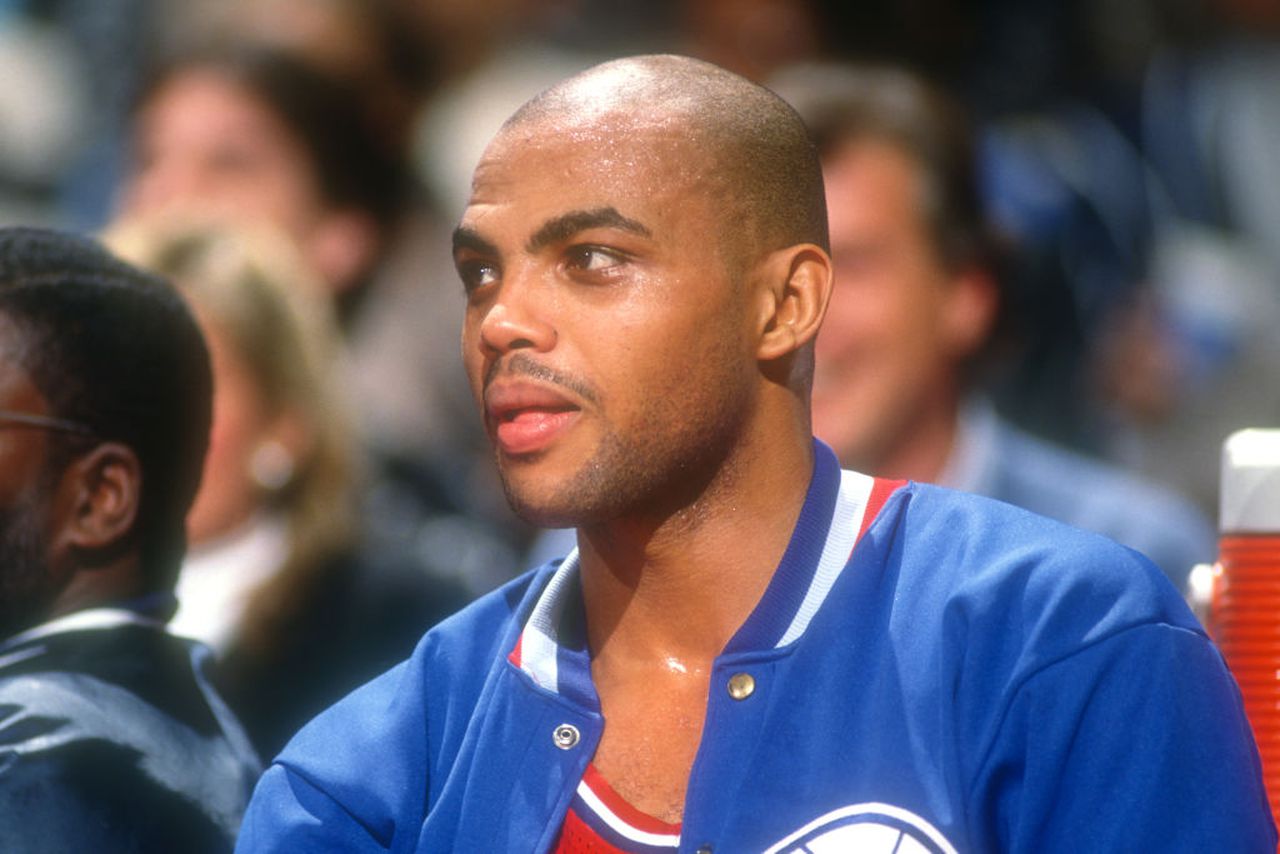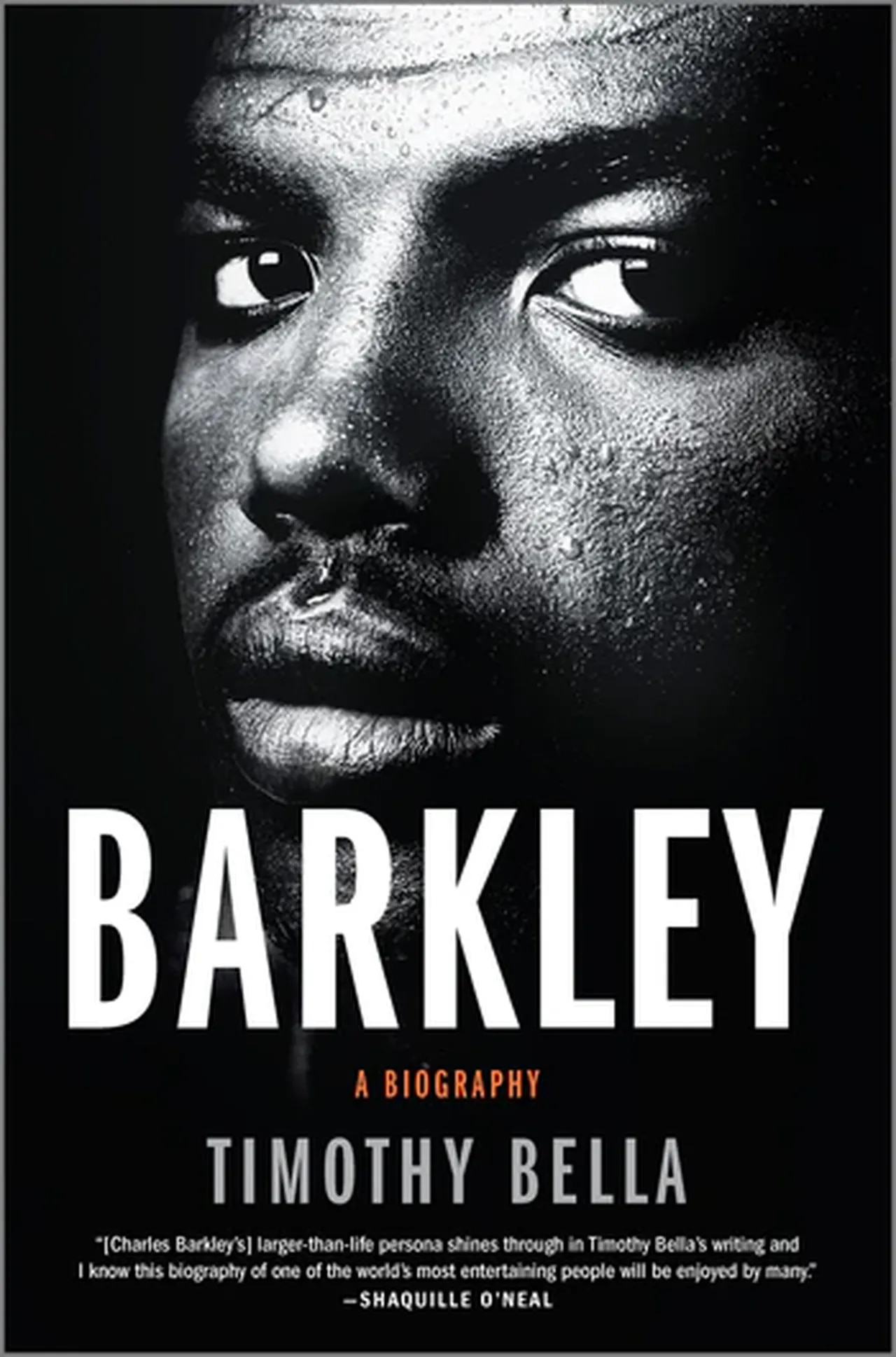Q&A with Timothy Bella, author of ‘Barkley: A Biography’
Somewhere along the way, Charles Barkley made the transition from basketball villain to cultural icon who has the rare quality of being able to do and say anything he wants with few repercussions.
That’s the path Timothy Bella charts in his new book “Barkley: A Biography,” published Tuesday by HarperCollins. Bella, a staff writer and editor for The Washington Post and a former sports reporter with ESPN the Magazine and other outlets, interviewed more than 300 of Barkley’s friends, colleagues and teammates and others in Sir Charles’ considerable orbit for what he hopes is a definitive look at the life and legacy of one of both the state of Alabama and the world’s true originals.
Bella spoke Monday with AL.com for the following Q&A, which has been condensed for length and slightly edited for clarity:
Q: What drew you to the Charles Barkley story? How long have you been following his career and what interested you most about him?
A: “I started off in sports, covering football and basketball in college [at TCU]. Sports was always in my blood. I grew up in Houston, so I was always a pretty big Rockets fan. My first exposure to Barkley was absolutely hating him whenever the (Phoenix) Suns came to town. As someone who grew up loving sports and didn’t have a ton of confidence at the time, I saw someone like Charles Barkley, who was undersized and round, but had no problem kicking so much butt. He turned me into a fan. After I got into journalism, I got better understanding of him and his story. Some of the stuff he was saying at the time was not what other athletes were saying. For me, getting a chance to tackle and explore this big life of someone who’s been a public figure for over 40 years now, who is an obvious legend among legends, was just an absolute honor.”
Q: How long did you work on the book and were you able to get Barkley’s participation for it?
A: “In May of 2019, before I interviewed a single person, I reached out to Charles and his camp to try and get him on-board. I told them ‘this is going to be a really good book and I definitely want you involved.’ And they thought about it, and they eventually said no. So I did not talk to Charles for this book, but I interviewed over 370 people from his childhood up to now, from his first middle school coach to Sonny Smith at Auburn, to Bobby Lee Hurt, who Charles kind of made his name off of during a holiday tournament when he was in high school. So it was everyone from that period, but also people like Dr. J, Shaquille O’Neal, Adam Sandler, Chuck D, Dan Quayle — it’s a wide range. It’s been a lot of fun and my hope was to go back and see how this life happens — this incredible life from the projects of Leeds, Alabama, raised by a single mother in his grandmother’s house. This short, fat kid became a top cultural icon.”
Q: Jeff Pearlman recently released a biography of Bo Jackson, and there are a lot of parallels between Bo and Barkley — they’re from the same part of the world, both played at Auburn, both were kind of unknowns coming out of high school and were not the top recruits in their class. How did it happen that Barkley became what he became?
A: “It really did kind of start from that holiday tournament, where he just dominated Bobby Lee Hurt up and down. He blocked four or five of his shots, was just dunking the entire time. At that time, Barkley was getting some smaller school looks or junior colleges where he could eventually transfer to a major program. But once that happened, it seemed to open up eyes to what was an anomaly at the time — this undersized power forward/center in high school who could jump out of the gym.”
“Barkley: A Biography,” written by Washington Post reporter Timothy Bella, will be released Tuesday, Nov. 1, 2022, by HarperCollins. (HarperCollins.com)
Q: One of the fascinating things about Barkley is that he never really won much as a player other than in the Olympics later in his career. How big a part of his narrative is that he might be the most-famous non-winner in basketball, if not in any major sport?
A: “It’s true. That is something that still follows him today. You see it every Thursday night on ‘Inside the NBA’ [from the other analysts], ‘oh Chuck, you never won anything.’ And he takes it in stride. He obviously had a great career and accomplished a lot of things not many others accomplished. But when you think of athletes who did not win, he’s either the first or second name that pops up for everyone.”
Q: Speaking of the Olympics, him not making the team in 1984 is a big part of his story, but then he came back in 1992 and became one of the faces of the ‘Dream Team.’ So that creates an interesting juxtaposition, doesn’t it?
A: “1984 is so interesting for a lot of reasons. He comes in there (for tryouts) and clashes immediately with (coach) Bobby Kinght. He makes fun of Bobby Knight’s shoes, Knight gets on him for showing up late, they are just oil and water. But during the course of those tryouts, something happens. Charles becomes the second-best player there behind Michael Jordan. He just dominates everyone there. I spoke to Jim Boeheim, who was an assistant on that team, and he made it clear he did not want to be the one who told Charles he didn’t make the team. He was just a force of nature. So when he made the team in 1992, 1984 was very fresh in his head. It really hurt him and he wanted to make up for that.”
Q: Early in his career, Barkley was considered a villain in a lot of ways — the famous Nike ‘I am not a role model’ commercial and some other incidents where he got fights on the court or in bars and so on. At what point does that turn, where Barkley goes from bad guy to everybody’s crazy uncle?
A: “He really is that crazy uncle for a lot of people. But early on, I think he saw where he stood in the NBA’s hierarchy. It was Michael Jordan and then everybody else. But there was a 3-4-year stretch in the early 1990s where the NBA saw him as the No. 2. I spoke to several people about this, and they all kind of landed on the same thing: Barkley was such a showman that he was always more comfortable being Darth Vader than Luke Skywalker. And he saw big business in that. He definitely embraced that bad boy image for a bit. But as he got older and out of the point where he was competing for NBA titles, he kind of settled into that lovable role and began having more congenial exchanges with the media. He saw his finish line. In the back of his head, he knew he was going to be an announcer one day and he was preparing for that.”
Q: Not just in his announcing career, but in general, Barkley seems to be one of the few people in the United States if not the world, who can say or do anything they want and get away with it. What is that quality that makes him able to do so?
A: “He definitely is. The difference with Barkley and some others is that most everything he says seems to come from a place of love. Even when he’s addressing important topics like police brutality or politics, people seem to understand that he’s mostly joking about it. He doesn’t mean any harm. And he is a very public person. He says things that are wrong, but he does have that ‘crazy uncle’ quality that allows him to get the benefit of the doubt, especially since he’s been doing it for so long.”

Charles Barkley is shown in 1990, during his days as an All-Star forward with the NBA’s Philadelphia 76ers. (Photo by Mitchell Layton/Getty Images)Getty Images
Q: I think a subject people in this state might be interested in is, it was rumored for years that he might run for governor. How serious was he about that, in terms of actually exploring doing it?
A: “He was serious. I spoke with (former) vice-president Dan Quayle about this and he was very clear — Barkley was close to filing his candidacy in Alabama as a Republican. Years later, Barkley would say ‘I was never a Republican, I was always a Democrat’ but a lot of stuff he would say in public said otherwise. This was someone who had been friends with Clarence Thomas and Rush Limbaugh and at one point saw eye-to-eye with the Republican party and said ‘if I ever run for public office — one, it would be in Alabama, and two, it would be as a Republican.’ He said years later that he’d made too much money and enjoyed his life too much to go into politics, but there’s no question he was serious about it at one time.”
Q: We touched on his career as an announcer, but the fact that he recently agreed to a 10-year, $100 million contract for a job in which he works probably 15 hours a week, it seems like he’s still living the dream, right?
A: “Right, sign me up for that. I do think he’s happy doing it right now, but I don’t know that he’s going to stay there for the length of the contract. He’s got a grandson now, he’s about to be 60. He enjoys fishing and playing golf and he’s said several times, ‘I’m not going to die in that chair.’ If he does play out the whole contract, he’d be 70. He’s always said he didn’t want to be a (game) announcer because he wasn’t totally connected to the current NBA and hated the hours. I do think it’s awesome that he’ll be there for a while, but I can’t say he’ll stay the entire 10 years.”
Q: What else do you have to add about the book that readers might want to know?
A: “I just want to say that it’s been an incredible experience working on it. When I took on Charles as a subject, I wanted someone who would keep me engaged the whole time, and I couldn’t have picked a better person. He’s just so interesting and important on so many levels. His story keeps me captivated and I think it will do the same for readers.”
Creg Stephenson has worked for AL.com since 2010 and has covered college and pro sports for a variety of publications since 1994. Contact him at [email protected] or follow him on Twitter at @CregStephenson.
